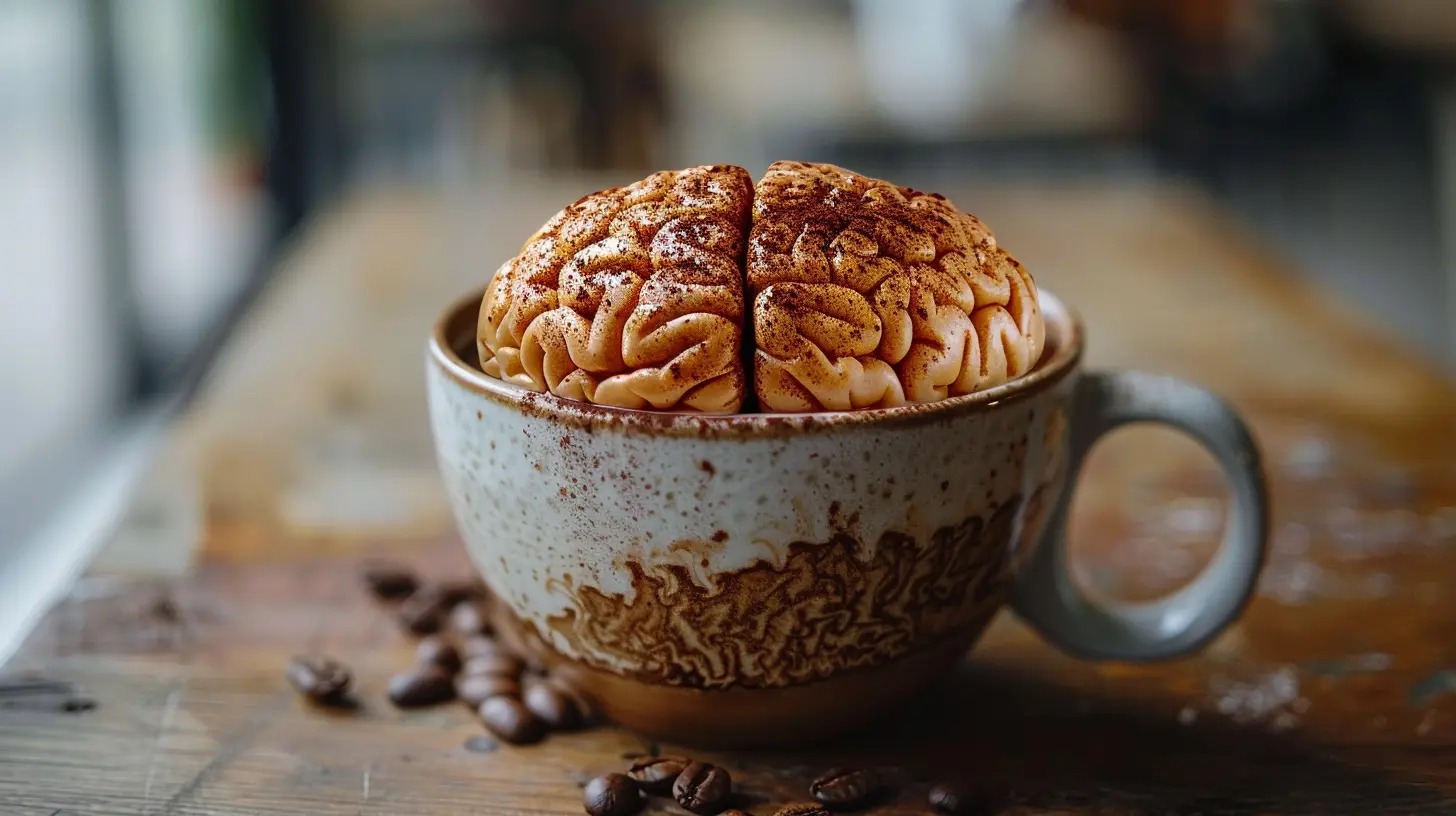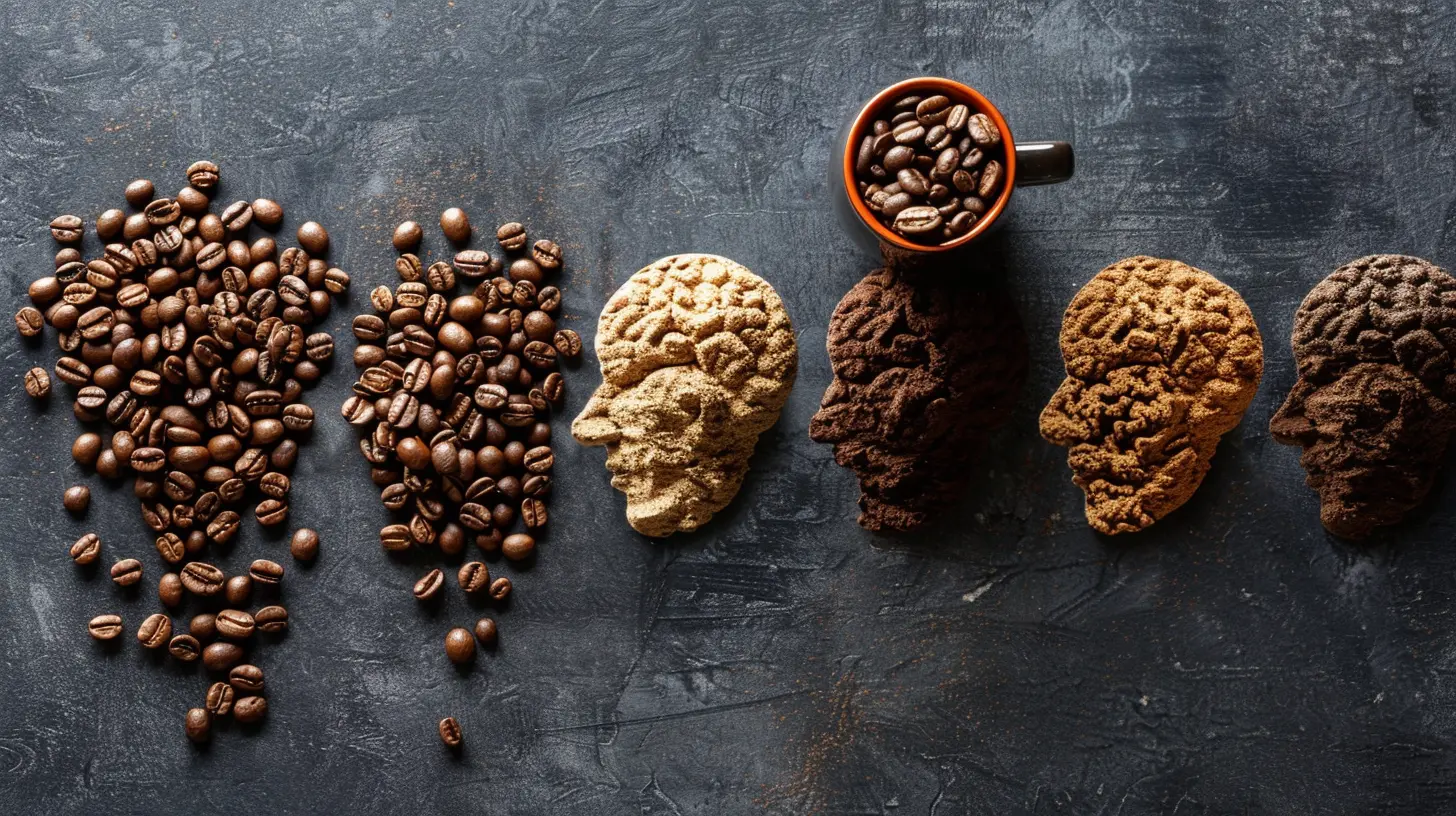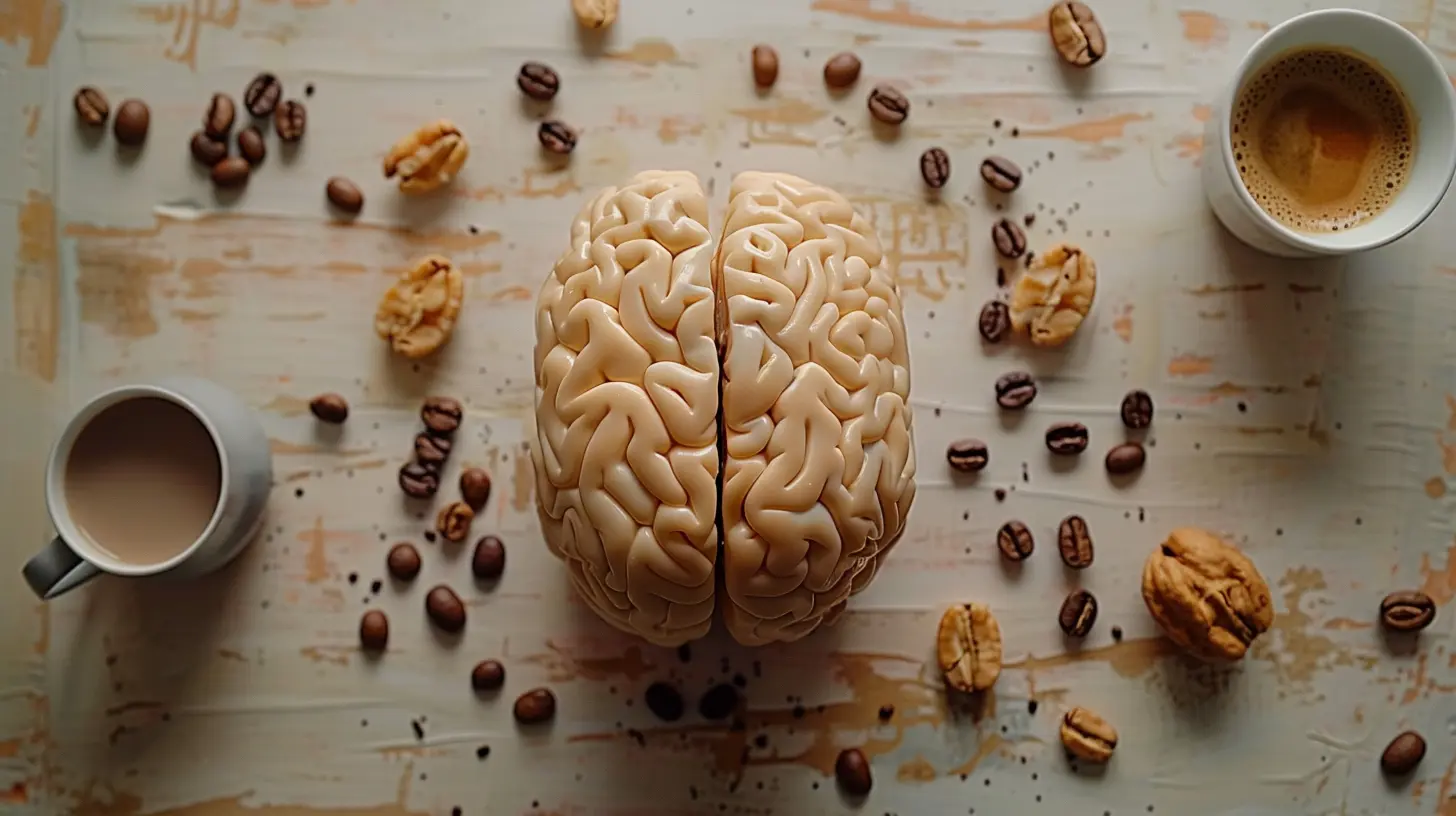25 December 2024
Most of us can't imagine starting our mornings without a steaming cup of coffee. It’s the magic potion that gets us out of bed, sharpens our focus, and fuels our day. But when it comes to coffee and brain health, the conversation often gets a bit murky. Is coffee a brain booster or a cognitive crasher? Are those rumors about it being "bad for your brain" even true? Let's cut through the noise and separate myths from facts.
In this article, we’re diving deep into the relationship between coffee and your brain. Buckle up, because what you learn might just change how you think about your favorite brew.
The Love Affair Between Coffee and the Brain
Before we tackle the myths, let’s take a moment to understand why coffee affects your brain in the first place. The star player in coffee is caffeine—a natural stimulant that loves your central nervous system. When you sip on coffee, caffeine blocks a neurotransmitter called adenosine. Adenosine is like your brain’s "chill out" signal—it slows things down and makes you feel sleepy. By blocking it, caffeine tricks your brain into staying alert and energized.But coffee doesn’t stop there. Studies show it also increases the release of dopamine and norepinephrine, the "feel-good" chemicals that boost mood, focus, and even learning. Now that we know why coffee and our brains are so closely connected, let’s dig into the myths and facts.
Myth vs. Fact: Does Coffee Improve Cognitive Function?
Myth: Coffee Makes You Smarter
It would be great if a cup of coffee could turn us into instant geniuses, wouldn’t it? Sadly, this is just wishful thinking. While coffee can enhance focus and alertness, it doesn’t actually make you more intelligent. Think of it like putting on glasses: it might sharpen your vision (or in this case, your thinking) temporarily, but it doesn’t fundamentally change how your brain works.Fact: Coffee Boosts Mental Performance—Temporarily
Here’s the good news: coffee can make you feel mentally sharper, at least for a while. Research shows that caffeine can improve reaction time, problem-solving ability, and even short-term memory. So, if you’re tackling a big project or have an important exam, your morning latte might give you that extra mental edge.
Myth vs. Fact: Can Coffee Protect Against Cognitive Decline?
Myth: Coffee Prevents Alzheimer’s and Dementia
The idea that coffee could single-handedly protect you from Alzheimer’s or dementia sounds amazing, but it’s a bit of a stretch. While some studies suggest a link between moderate coffee consumption and a lower risk of cognitive decline, this doesn’t mean coffee is a magical shield against brain diseases. There are a lot of other factors—like genetics, diet, and lifestyle—that play a role.Fact: Coffee May Support Long-Term Brain Health
Here’s the flip side: research does suggest that coffee might contribute to better brain health over time. For example, studies have found that coffee drinkers have a lower risk of developing neurodegenerative diseases like Parkinson’s. The antioxidants in coffee (hello, polyphenols!) are believed to reduce inflammation and protect brain cells from damage. While it’s not a guarantee, it’s nice to know your daily brew might be doing some good behind the scenes.
Myth vs. Fact: Is Coffee Addictive?
Myth: Coffee Addiction is Just a Myth
Let’s be honest—if you’ve ever tried to skip your morning coffee and ended up with a splitting headache or grumpy mood, you know this myth doesn’t hold water. Coffee can be habit-forming because of caffeine, which can lead to mild dependence.Fact: Coffee Dependence is Real—But Manageable
Yes, coffee can be addictive, but it’s not the kind of addiction that will turn your life upside down. Unlike harder substances, coffee dependence is relatively mild and can be managed simply by cutting back slowly. Plus, the occasional caffeine break can help reset your tolerance, so your coffee feels extra effective when you come back to it.Myth vs. Fact: Does Coffee Cause Anxiety or Stress?
Myth: Coffee Always Makes You Anxious
You’ve probably heard people blame coffee for their jittery nerves or racing thoughts. While caffeine does increase alertness, it doesn’t always lead to heightened anxiety. For most people, moderate coffee consumption is perfectly fine.Fact: It Depends on Your Sensitivity
The truth is, everyone’s body reacts differently to caffeine. If you’re particularly sensitive or tend to drink huge amounts, you might notice more anxiety or even trouble sleeping. The key is moderation. Stick to 1-3 cups a day, and you’ll likely avoid the dreaded coffee jitters.Myth vs. Fact: Does Coffee Dehydrate You?
Myth: Coffee Dries Out Your Brain
This is one of those myths that just won’t die. Yes, caffeine is a mild diuretic, meaning it makes you pee a bit more, but it doesn’t dehydrate you to the extent people think. (Your brain isn’t going to shrivel up like a raisin after your morning brew—promise!)Fact: Coffee Contributes to Your Daily Hydration
Surprise! Coffee actually counts toward your daily water intake. While it’s not a replacement for good old H2O, your morning cup of joe is still a liquid that helps keep you hydrated. Just don’t overdo it, because too much caffeine can have the opposite effect.How Much Coffee is Too Much?
Ah, the million-dollar question. The answer depends on your tolerance and lifestyle, but experts generally recommend sticking to about 400 milligrams of caffeine per day—that’s roughly 4 cups of coffee. Beyond that, you might start experiencing side effects like restlessness, insomnia, or an upset stomach.If you’re pregnant, breastfeeding, or have certain health conditions, it’s best to keep caffeine intake even lower. When in doubt, talk to your doctor.
Tips for Healthy Coffee Habits
If you love coffee (and let’s be real, who doesn’t?), here are some tips to make sure you’re enjoying it in a way that supports your brain and overall health:- Keep it simple. Skip the sugary syrups and heavy creamers. Black coffee or a splash of milk is usually your healthiest bet.
- Time it right. Avoid coffee late in the afternoon or evening to prevent it from messing with your sleep.
- Pair it with food. Drinking coffee on an empty stomach might make you feel jittery, so have it alongside a snack or meal.
- Know your limits. Pay attention to how your body reacts. If you feel anxious, cut back. If you feel fine, enjoy!
Final Thoughts: Coffee and Brain Health
At the end of the day, coffee is one of those magical drinks that’s loved by millions around the world for good reason. When consumed in moderation, it can do wonders for your mental alertness, mood, and possibly even your long-term brain health. But like all good things in life, too much coffee isn’t great either. The trick is finding that sweet spot where you can enjoy your brew without tipping the scales.Remember, coffee isn’t a miracle cure, but it’s also not the villain some make it out to be. So, the next time you sip your favorite cup of coffee, rest easy knowing you’re giving your brain a little boost—but don’t expect it to work miracles!









Romina Walker
I’ve always wondered how coffee really impacts our brain health! Are the myths about its effects just oversimplified, or is there more to the science behind caffeine? Fascinating topic!
March 19, 2025 at 5:00 AM